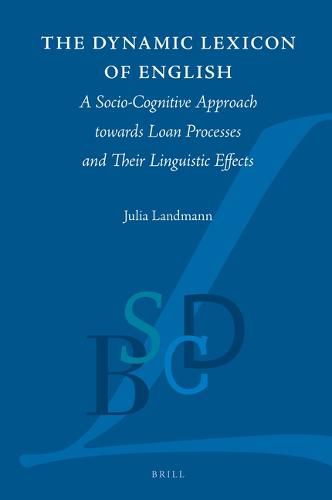Readings Newsletter
Become a Readings Member to make your shopping experience even easier.
Sign in or sign up for free!
You’re not far away from qualifying for FREE standard shipping within Australia
You’ve qualified for FREE standard shipping within Australia
The cart is loading…






The open access publication of this book has been published with the support of the Swiss National Science Foundation.
This study investigates the interrelation between use, meaning and the mind as a central issue of contact-induced linguistic variation and change, using the influence of French, Spanish, German and Yiddish on English as case studies. It relies on innovative methodological approaches, including the use of an integrative, socio-cognitive model of the dynamic lexicon, to describe borrowing processes and their linguistic outcomes. The multitude of socio-cultural contexts relevant to the introduction of the various borrowings since the nineteenth century has been reconstructed. This implies the identification of borrowings reflecting connections of linguistic features and culturally embedded attitudes. Taking the effects of cognitive and social factors on conventionalization and entrenchment processes into account, this study makes an original contribution to existing research.
$9.00 standard shipping within Australia
FREE standard shipping within Australia for orders over $100.00
Express & International shipping calculated at checkout
The open access publication of this book has been published with the support of the Swiss National Science Foundation.
This study investigates the interrelation between use, meaning and the mind as a central issue of contact-induced linguistic variation and change, using the influence of French, Spanish, German and Yiddish on English as case studies. It relies on innovative methodological approaches, including the use of an integrative, socio-cognitive model of the dynamic lexicon, to describe borrowing processes and their linguistic outcomes. The multitude of socio-cultural contexts relevant to the introduction of the various borrowings since the nineteenth century has been reconstructed. This implies the identification of borrowings reflecting connections of linguistic features and culturally embedded attitudes. Taking the effects of cognitive and social factors on conventionalization and entrenchment processes into account, this study makes an original contribution to existing research.